Tips and tricks for traveling to Tokyo
Get to know Tokyo before you go

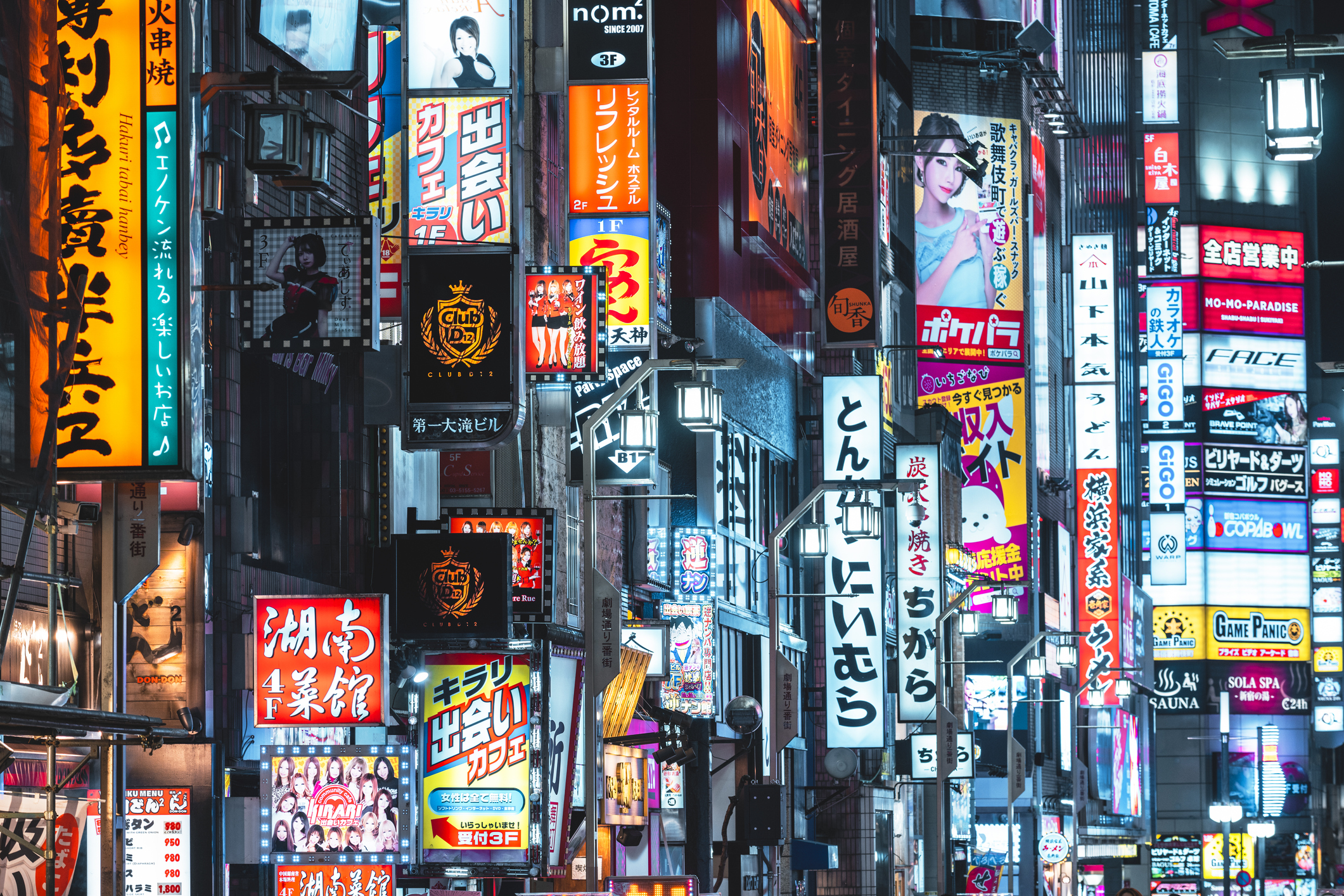
A free daily email with the biggest news stories of the day – and the best features from TheWeek.com
You are now subscribed
Your newsletter sign-up was successful
Whatever you're looking for, you'll find it in Tokyo. The city entices visitors with its blend of modern and traditional culture, vibrant nightlife and entertainment, innovative hospitality, and exquisite cuisine.
Because there's so much to see, do, and try across Tokyo's diverse neighborhoods and districts, it can be a bit overwhelming for a first-timer to plan a visit. Here are a few tips and tricks to make prepping a little easier.
Some things to know about Tokyo
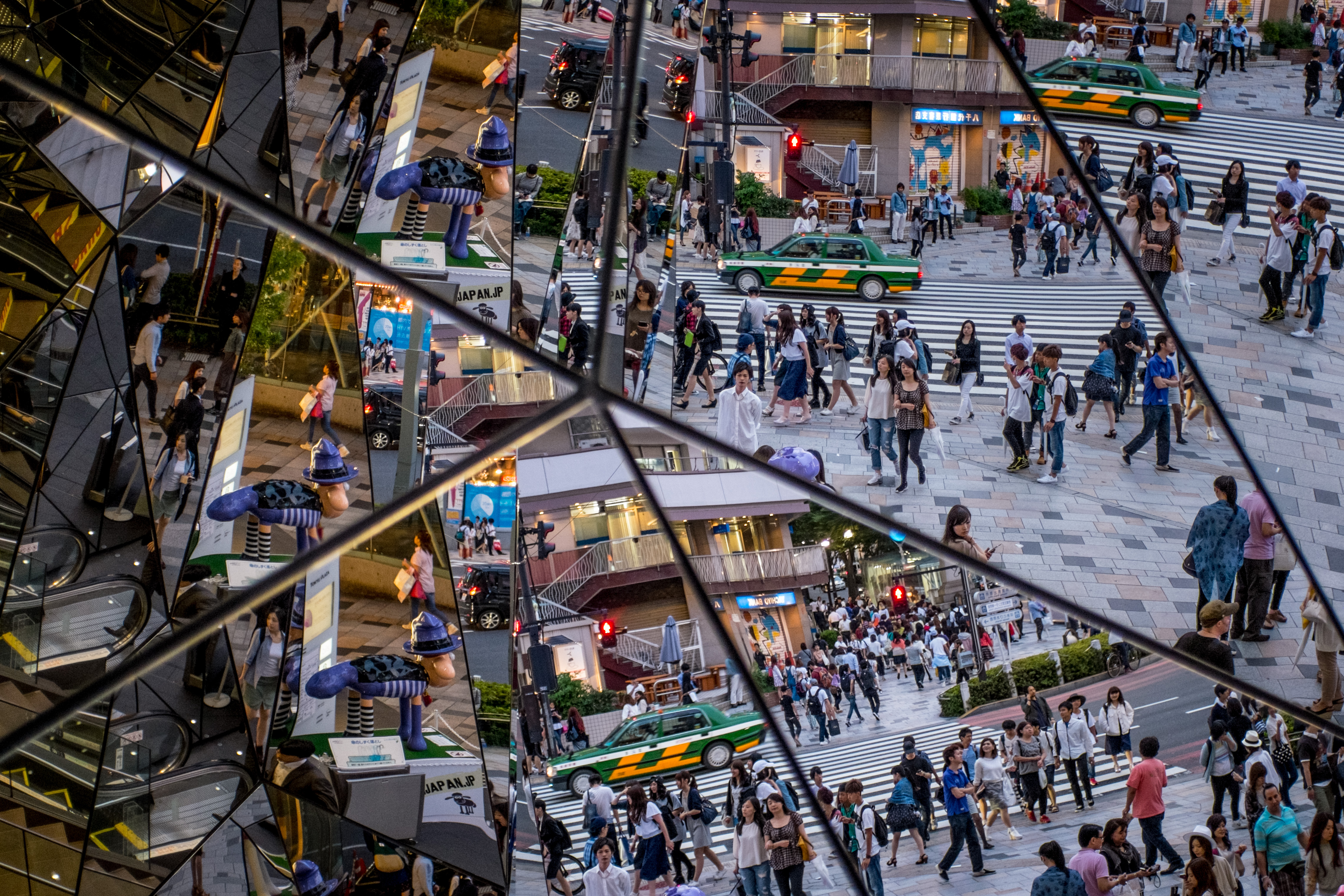
Harajuku is a colorful and fashion-forward part of Tokyo
Tokyo is a sprawling city, and each distinct neighborhood has its own perks that draw in visitors. Harajuku is where fashion styles are born and the shopping is on point, while Asakusa is more traditional and home to the Sensoji Temple and theaters offering rakugo storytelling. Read up on the different areas before you start planning your trip, so you can have a better idea of the neighborhoods that provide what you're looking for.
The Week
Escape your echo chamber. Get the facts behind the news, plus analysis from multiple perspectives.

Sign up for The Week's Free Newsletters
From our morning news briefing to a weekly Good News Newsletter, get the best of The Week delivered directly to your inbox.
From our morning news briefing to a weekly Good News Newsletter, get the best of The Week delivered directly to your inbox.
Hotel rooms are often smaller in Japan, so try to pack as lightly as possible. One thing you don't want to leave at home is cash; in many places, credit cards are not accepted.
Bullet train basics
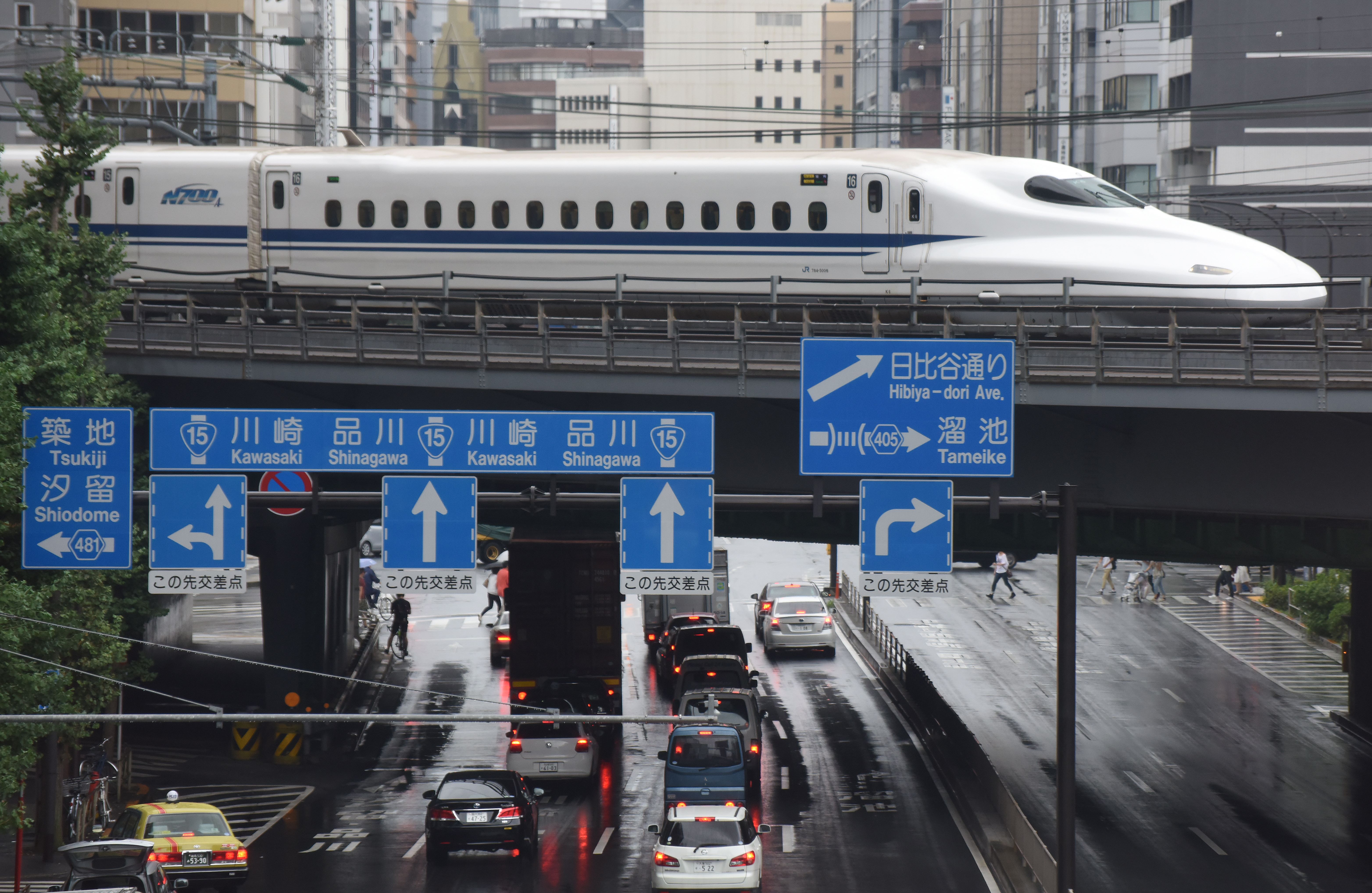
The Shinkansen bullet trains are a comfortable way to travel across Japan
Shinkansen is a network of high-speed trains that sweep passengers from city to city. The main Tokyo Station connects travelers to major destinations, and tickets can be purchased in advance online. Izumi Kirchmayr Ogawa, an independent affiliate of Direct Travel-Vancouver, told The Week that "you don’t necessarily need to book a green car," or first-class, tickets, adding, "All the cars are clean and comfortable." If you can find out which side of the train has the best view for your journey, make sure to choose a seat in the right spot. "For example, from Tokyo to Kyoto, I recommend that people should reserve seats on the right side of the train, as they can see Mt. Fuji," Ogawa said.
The bullet trains don't have much storage, and space is even more limited when there are a lot of tourists. Instead of lugging your belongings around, Ogawa suggests using a delivery service. "It’s very convenient and the service is very reliable to get your bags delivered to your next destination in a timely manner," she said. "Plus, you're not struggling to navigate the busy train stations with your large bags."
If you're traveling a long distance on the train, be sure to grab something to eat and drink before boarding. Ekiben are bento boxes riders can enjoy while riding the rails, which are sold in convenience stores in and around train stations. "This is our favorite thing to do on the train," Ogawa said. You can also imbibe, but drink responsibly.
A free daily email with the biggest news stories of the day – and the best features from TheWeek.com
All about sento and onsen
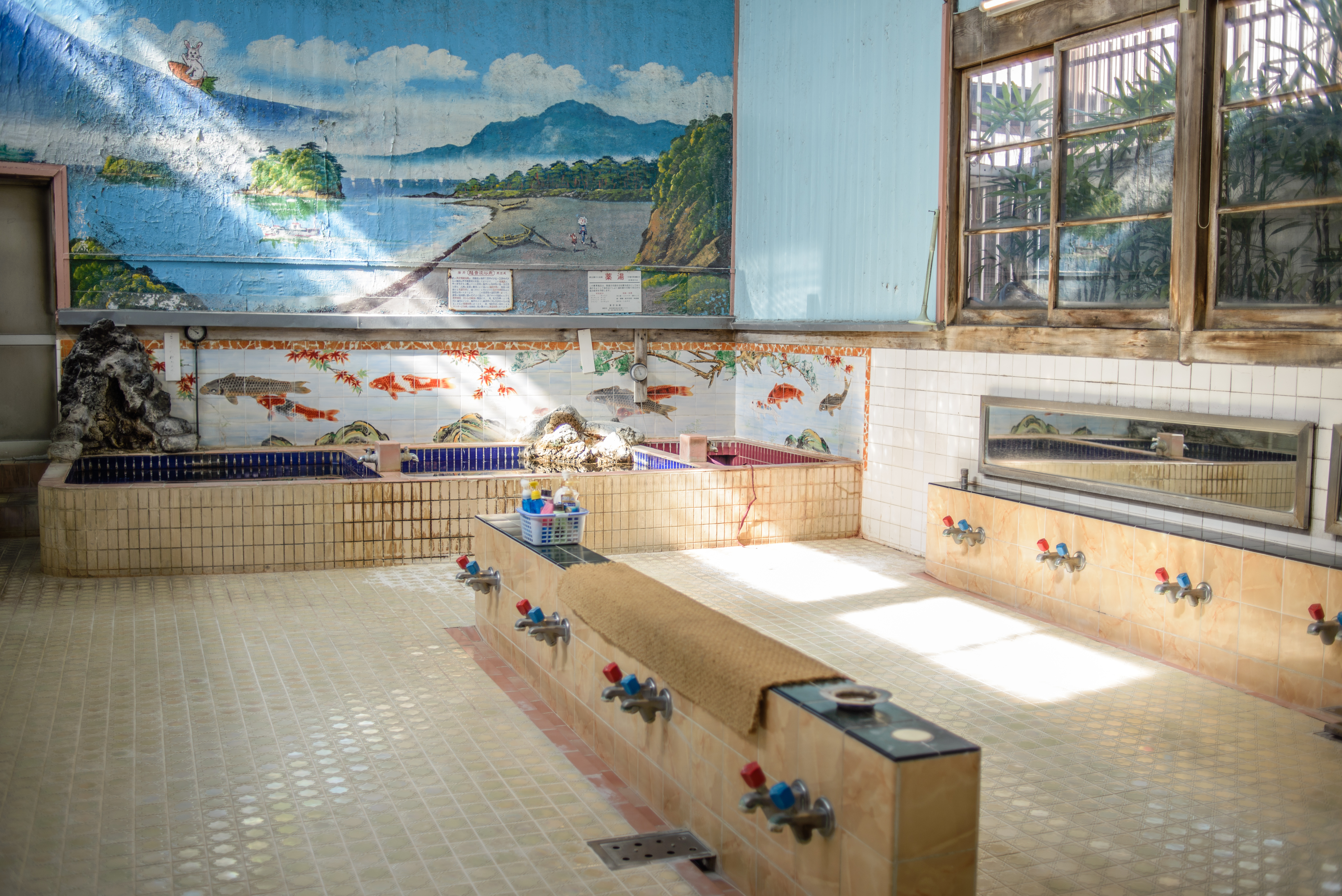
Leave your bathing suits behind: you can't wear anything at public baths in Tokyo
In Japan, "having baths is part of our culture and we take a bath every day," Ogawa said. Public bath houses are known as sento. Here, the baths are filled with heated tap water, while onsen are hot springs; Ogawa noted that today, "there are many public bath houses where the water contains mineral ingredients. Since Mt. Fuji is closer, there are a lot of public baths in southern Tokyo."
There are guidelines to follow, and they differ from what might be acceptable at a spa in North America or Europe. "No clothing or swimsuits are permitted," Ogawa said. Women's changing rooms are usually behind a red curtain and men's behind a blue curtain, and once you're undressed, you should head to the cleansing areas before going to the baths or onsen. Don't forget to bring your towel along for every step of the experience — you'll need it to dry off, and you can use it to cover up when walking around. Just make sure you follow etiquette and keep the towel out of the water.
If you've got ink, know in advance that most baths do not allow visitors with tattoos. That's because in Japan, "gangsters are typically heavily tattooed," the Japanese National Tourism Organization explained, and the bans "tend to come from a desire to avoid non-tattooed guests feeling uneasy around people perceived as dangerous." Tiny tattoos could be covered up with bandages, but it's best to check with a bath ahead of time to find out its exact rules.
The place for foodies
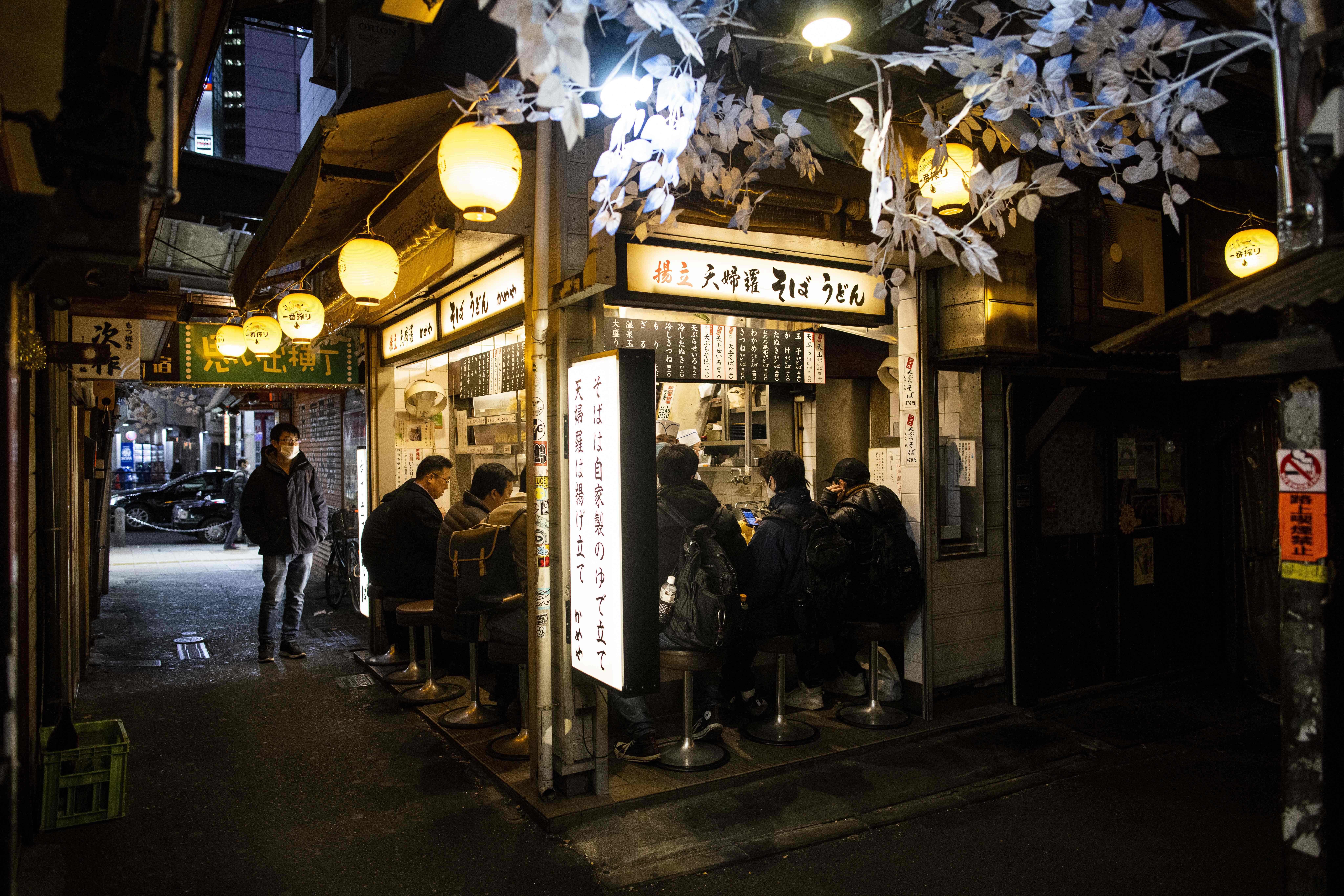
A late night bite in Tokyo
For many visitors, the Tokyo culinary scene is what lured them to the city. "Tokyo has everything," Ogawa said. "People can experience food from all over the world."
For those wanting to focus on Japanese cuisine, there are dishes that were perfected in Tokyo, like tempura, nigiri and monjayaki, plus regional specialties. One way to try a multitude of dishes is to go to a department store and visit its depachika food hall. "People will be overwhelmed by the variety of food and sweets," Ogawa said.
There are more Michelin-starred restaurants in Tokyo than any other city in the world, and here, diners will wait in long lines for a good meal, so pack your patience. There is no tipping in restaurants and cafés, "and the service quality is really good," Ogawa said. One tip she always gives to clients is to stop for some ice cream at a convenience store or Häagen-Dazs. "There are so many varieties and they are not as sweet as North American varieties," she said. Some flavors are only available in Japan, like Sakura (cherry blossom) and Carrot Orange.
Don't skip the drug stores
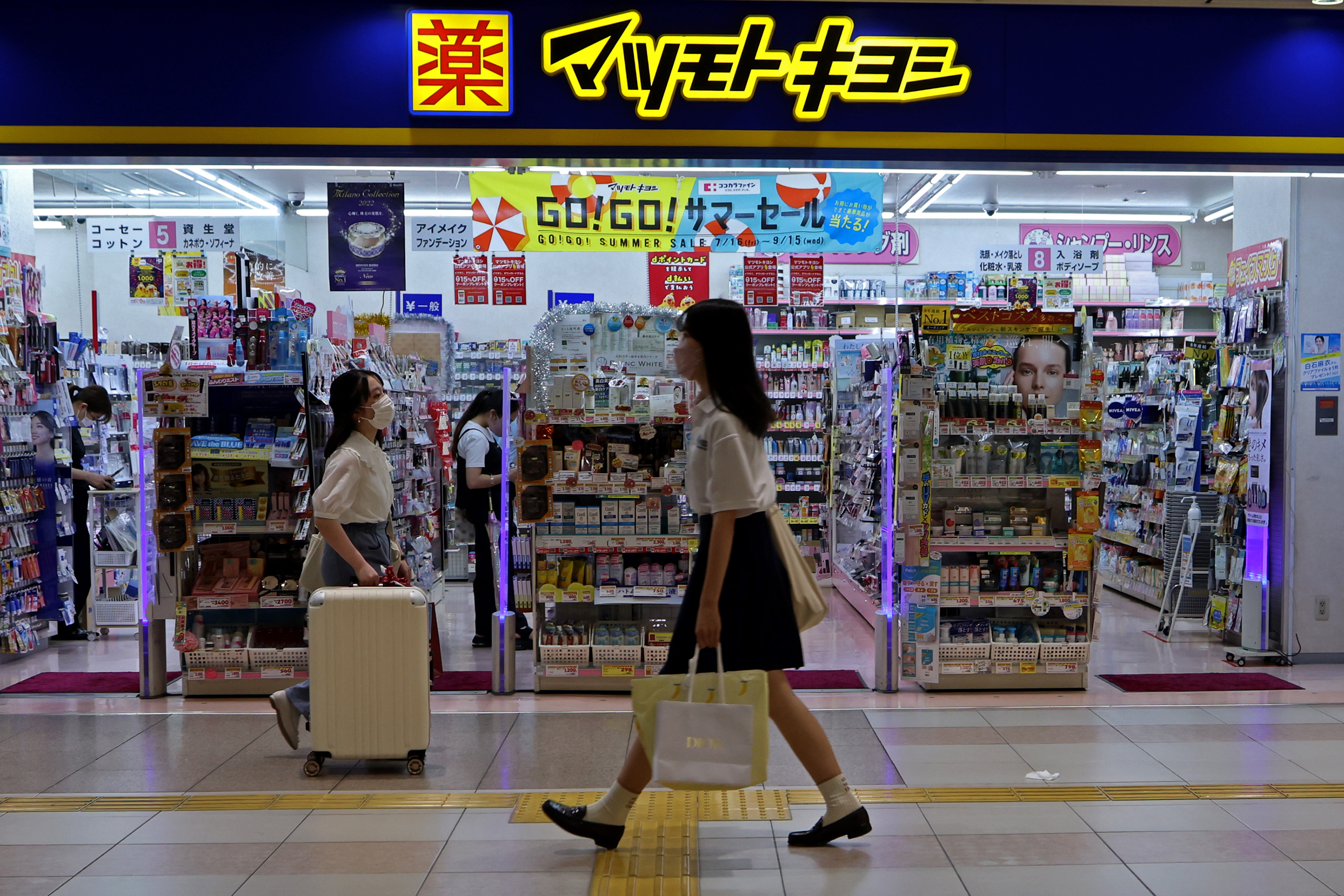
This is where you can find affordable souvenirs to bring back home
Japanese drug stores are packed with items that you can't find just anywhere, like "hot eye masks with aroma and cold feet pads," Ogawa said. There are aisles chock full of affordable skin care products, toiletries and cosmetics that come in handy while traveling but also make for fun souvenirs to bring home. Even a simple bottle of Japanese cold medicine is a hot commodity, Ogawa said, and her friends often ask her to bring some back when she visits Japan.
Catherine Garcia has worked as a senior writer at The Week since 2014. Her writing and reporting have appeared in Entertainment Weekly, The New York Times, Wirecutter, NBC News and "The Book of Jezebel," among others. She's a graduate of the University of Redlands and the Columbia University Graduate School of Journalism.
-
 Antonia Romeo and Whitehall’s women problem
Antonia Romeo and Whitehall’s women problemThe Explainer Before her appointment as cabinet secretary, commentators said hostile briefings and vetting concerns were evidence of ‘sexist, misogynistic culture’ in No. 10
-
 Local elections 2026: where are they and who is expected to win?
Local elections 2026: where are they and who is expected to win?The Explainer Labour is braced for heavy losses and U-turn on postponing some council elections hasn’t helped the party’s prospects
-
 6 of the world’s most accessible destinations
6 of the world’s most accessible destinationsThe Week Recommends Experience all of Berlin, Singapore and Sydney
-
 Travel for all: 6 of the world’s most accessible destinations
Travel for all: 6 of the world’s most accessible destinationsThe Week Recommends Experience all of Berlin, Singapore and Sydney
-
 A thrilling foodie city in northern Japan
A thrilling foodie city in northern JapanThe Week Recommends The food scene here is ‘unspoilt’ and ‘fun’
-
 Samurai: a ‘blockbuster’ display of Japan’s legendary warriors
Samurai: a ‘blockbuster’ display of Japan’s legendary warriorsThe Week Recommends British Museum show offers a ‘scintillating journey’ through ‘a world of gore, power and artistic beauty’
-
 Caribbean resorts that call for serious rest and relaxation
Caribbean resorts that call for serious rest and relaxationThe Week Recommends Serenity is a flight away
-
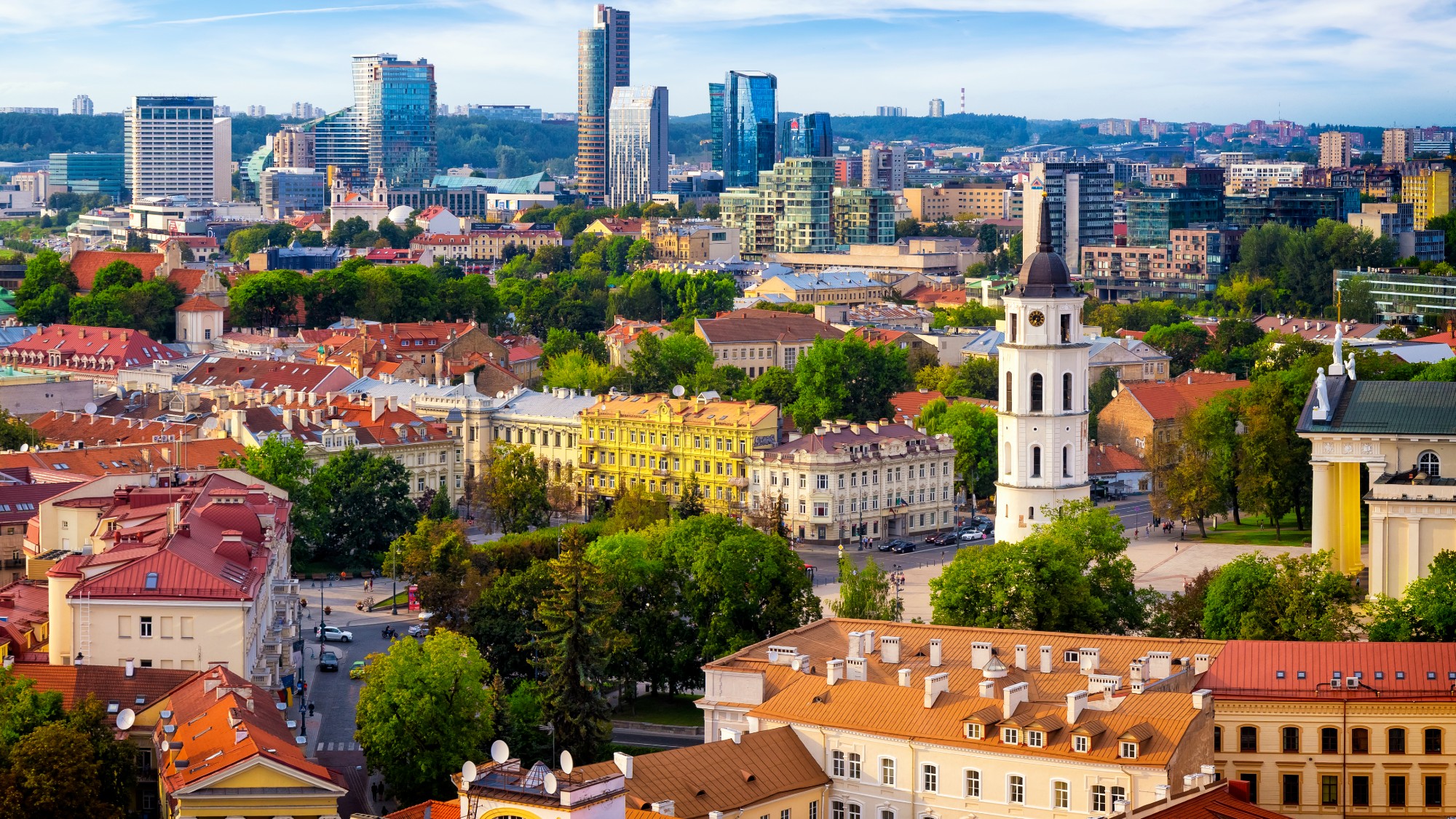 Exploring Vilnius, the green-minded Lithuanian capital with endless festivals, vibrant history and a whole lot of pink soup
Exploring Vilnius, the green-minded Lithuanian capital with endless festivals, vibrant history and a whole lot of pink soupThe Week Recommends The city offers the best of a European capital
-
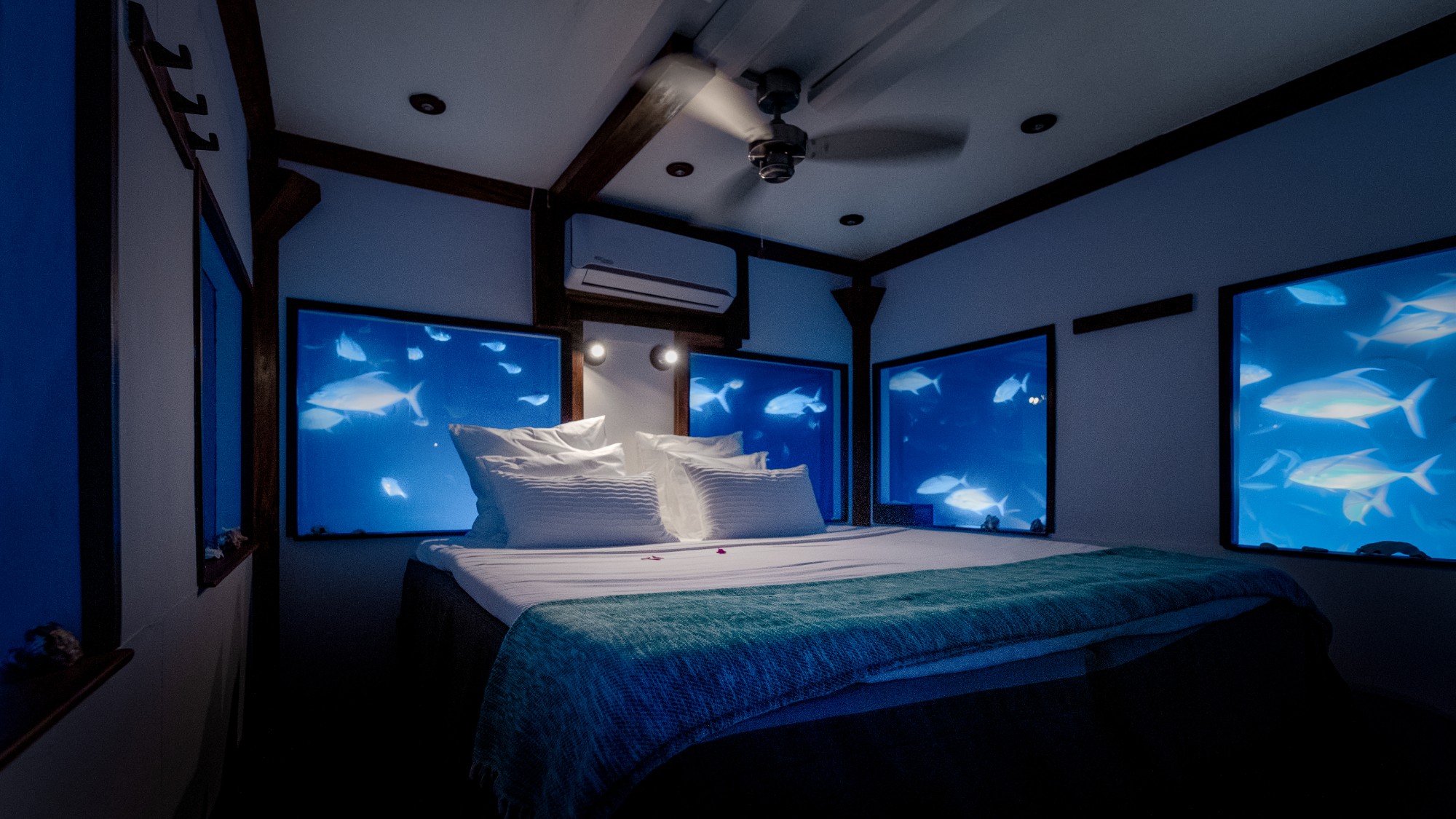 Dive right into these 8 underwater adventures
Dive right into these 8 underwater adventuresThe Week Recommends It’s time to make a splash
-
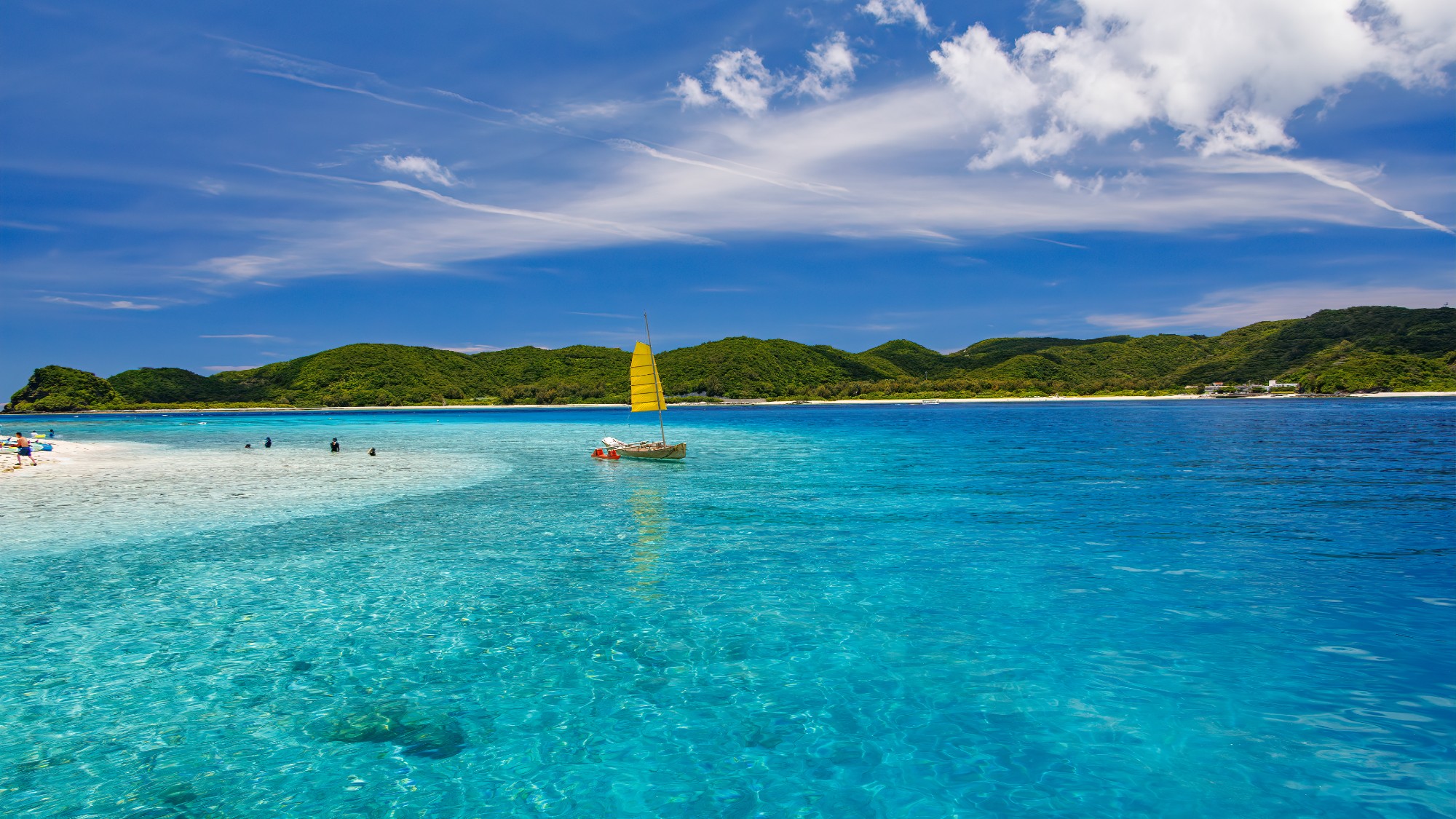 In Okinawa, experience the more tranquil side of Japan
In Okinawa, experience the more tranquil side of JapanThe Week Recommends Find serenity on land and in the sea
-
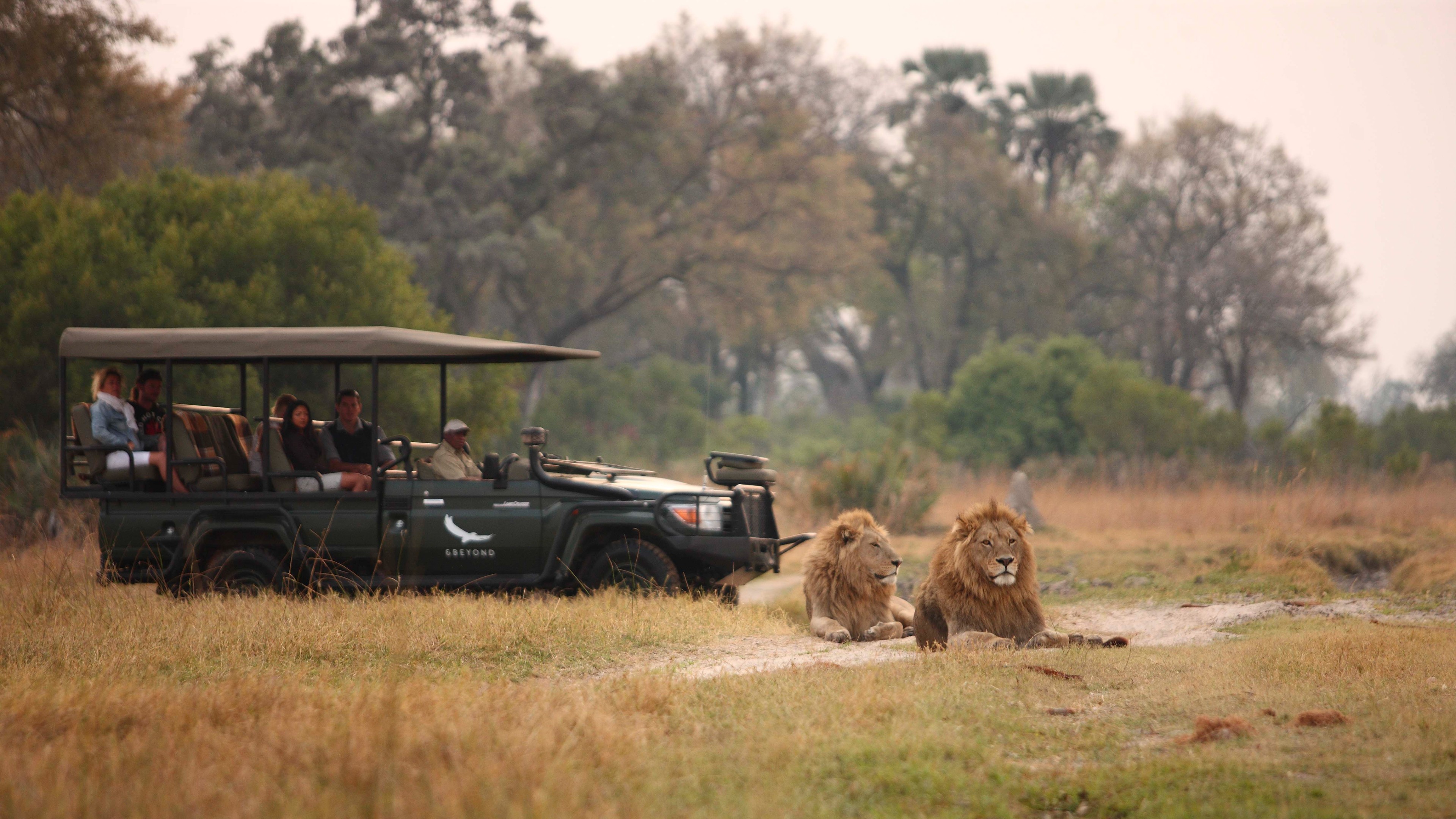 11 hotels opening in 2026 that will move you to reconnect with nature
11 hotels opening in 2026 that will move you to reconnect with natureThe Week Recommends Find peace on the beaches of Mexico and on a remote Estonian island
